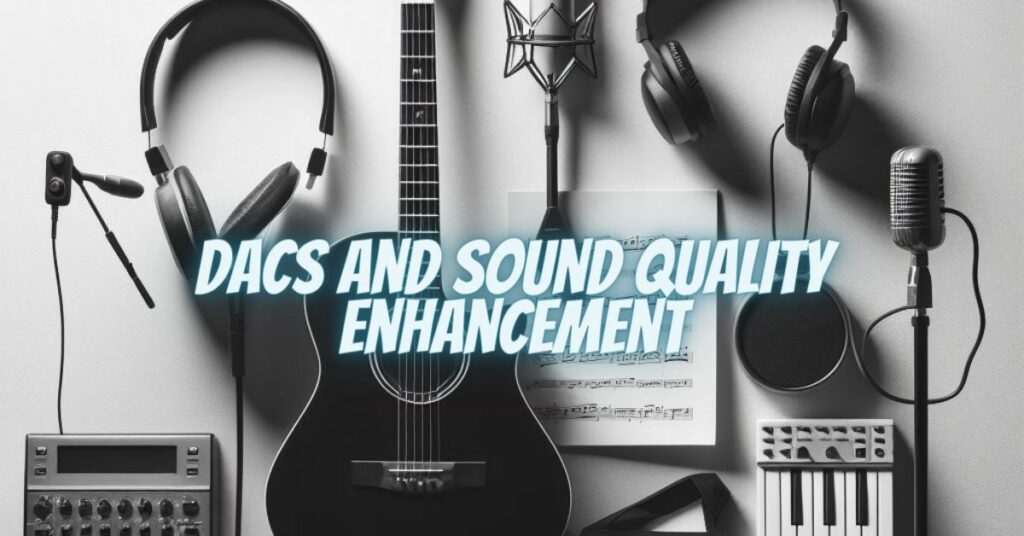The world of audio enthusiasts is often abuzz with discussions about the latest gadgets and technologies promising to enhance sound quality. Among these, Digital-to-Analog Converters (DACs) are often hailed as a game-changer. But do they truly improve sound quality, and if so, how? In this article, we’ll explore the role of DACs in audio systems and their impact on sound quality.
What is a DAC?
Before we dive into the impact of DACs on sound quality, it’s essential to understand what a DAC is. A Digital-to-Analog Converter, as the name suggests, is a device that converts digital audio data (binary code) into analog audio signals that can be played through speakers or headphones. In simple terms, it’s the intermediary that takes the 0s and 1s of your digital music files and transforms them into the electrical waveforms that your ears can hear.
- Signal Clarity and Accuracy
One of the primary arguments for using a DAC is the potential for improved signal clarity and accuracy. When you rely on the built-in DAC of a smartphone, laptop, or other devices, the quality of audio conversion may be less than optimal. A dedicated DAC is engineered to perform this task with greater precision, reducing digital artifacts and jitter, and ensuring that the audio signal remains true to the source material.
- Reduced Interference and Noise
DACs are often equipped with better components and shielding to minimize electromagnetic interference and other types of noise that can degrade audio quality. This can result in cleaner, more transparent sound, especially when compared to the built-in DACs of many consumer-grade devices.
- Enhanced Bit Depth and Sample Rate
DACs can support higher bit depths and sample rates than what built-in audio components often offer. This means that they can reproduce audio with greater detail, capturing subtleties in the music that might be lost in lower-quality conversions. However, it’s crucial to note that the benefits of higher bit depths and sample rates are most noticeable when you’re dealing with high-resolution audio files and high-quality headphones or speakers.
- Compatibility with High-Impedance Headphones
Many high-end headphones, particularly those used by audiophiles, have high impedance. Built-in audio components might struggle to drive these headphones properly, leading to reduced sound quality and volume. A dedicated DAC can provide the necessary power and voltage to drive such headphones effectively, resulting in improved sound quality and volume.
- Customization and Personalization
Some DACs offer features like EQ adjustments and filters, allowing users to fine-tune the sound to their preferences. This personalization can lead to a more satisfying listening experience, as it enables you to tailor the audio output to suit your specific tastes.
In summary, a Digital-to-Analog Converter can indeed improve sound quality under certain circumstances. It can enhance signal clarity, reduce interference and noise, support higher bit depths and sample rates, and drive high-impedance headphones more effectively. However, it’s essential to consider your audio setup and the quality of your source material.
If you are using low-quality audio files and standard headphones, the difference a DAC makes might be subtle. In contrast, if you are an audiophile with a high-quality audio setup, you are more likely to notice and appreciate the benefits of a dedicated DAC.
Ultimately, the impact of a DAC on sound quality depends on the quality of your source material, the audio equipment you use, and your personal preferences. It’s worth considering a DAC if you are passionate about audio and seek a more pristine and customized listening experience.


